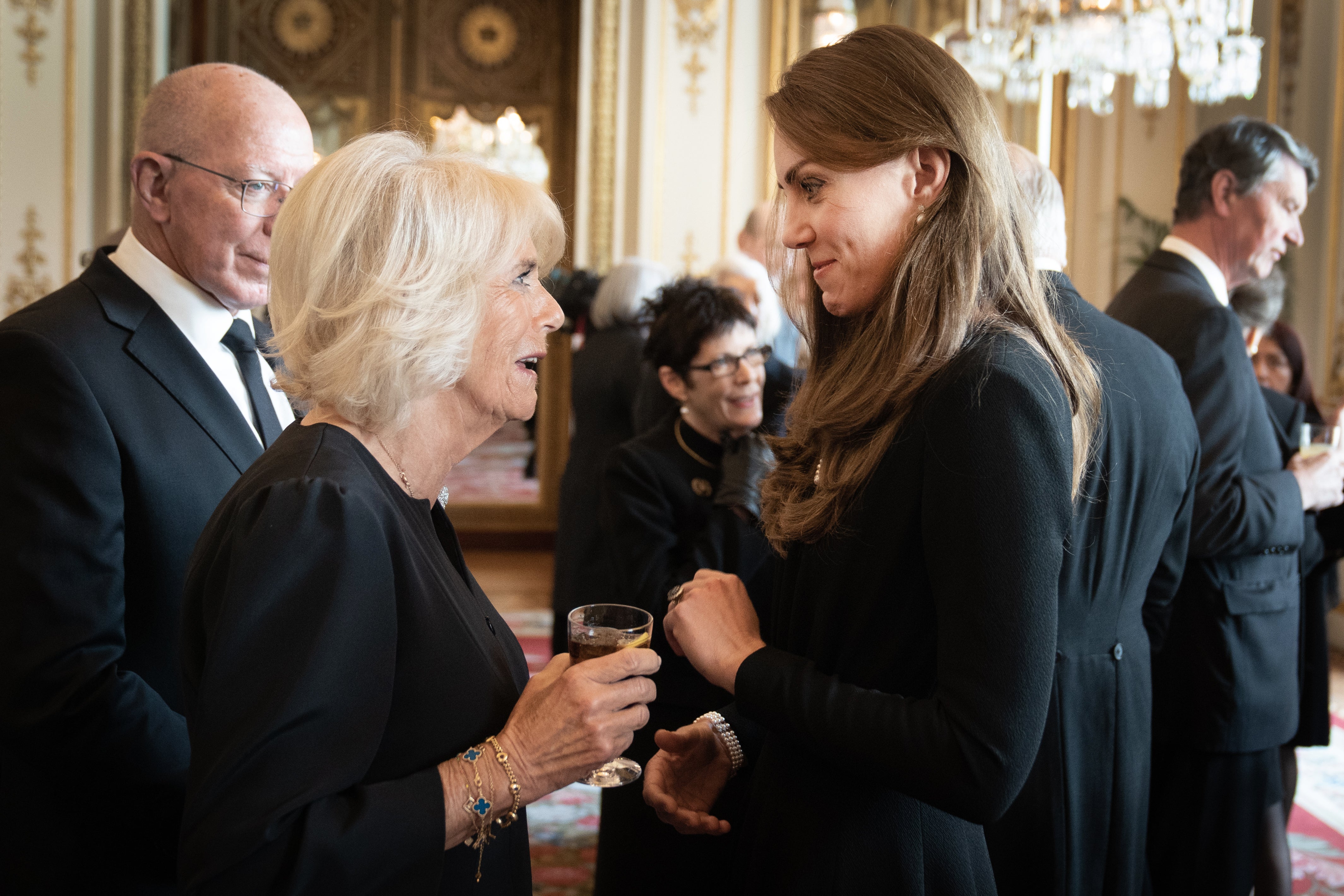Kate joins King, Queen Consort and William at palace lunch for governors-general
The quartet of royals took part in the key diplomatic engagement on Saturday.

Your support helps us to tell the story
From reproductive rights to climate change to Big Tech, The Independent is on the ground when the story is developing. Whether it's investigating the financials of Elon Musk's pro-Trump PAC or producing our latest documentary, 'The A Word', which shines a light on the American women fighting for reproductive rights, we know how important it is to parse out the facts from the messaging.
At such a critical moment in US history, we need reporters on the ground. Your donation allows us to keep sending journalists to speak to both sides of the story.
The Independent is trusted by Americans across the entire political spectrum. And unlike many other quality news outlets, we choose not to lock Americans out of our reporting and analysis with paywalls. We believe quality journalism should be available to everyone, paid for by those who can afford it.
Your support makes all the difference.The Princess of Wales joined the King, the Queen Consort and the Prince of Wales for a Buckingham Palace lunch with governors-general from the Commonwealth realms on Saturday.
Kate was seen deep in conversation with Camilla during the key diplomatic engagement.
The princess, who wore her hair down, was pictured smiling at the Queen Consort, who was holding a drink with a slice of lemon in it, as the pair chatted.
At one stage, Kate, who was wearing a long three-strand pearl necklace, placed her hand on the arm of Saint Lucia governor-general Cyril Errol Melchiades Charles as they spoke.
The princess also stood next to the King as he conversed with the dignitaries, with William also mingling in the busy room.
In addition to the UK, the King is head of state for 14 Commonwealth realms.
These are Antigua and Barbuda, Australia, The Bahamas, Belize, Canada, Grenada, Jamaica, New Zealand, Papua New Guinea, Saint Kitts and Nevis, Saint Lucia, Saint Vincent and the Grenadines, Solomon Islands, and Tuvalu.
But the monarchy’s future role in some of the countries appears less certain with the start of a new reign.
The prime minister of Antigua and Barbuda, Gaston Browne, said after the Queen’s death that he would call for a referendum on the country becoming a republic within three years.
New Zealand’s prime minister Jacinda Ardern has said her government will not pursue becoming a republic following the death of the Queen.
Australian Prime Minister Anthony Albanese has said “now is not a time” to discuss the country becoming a republic, but he has not ruled out a future referendum on the issue.
Jamaica is expected to follow Barbados, which became a republic in November 2021, although it remains within the Commonwealth.
Jamaica Prime Minister Andrew Holness told William and Kate during their tour in March his country was “moving on” and intended to “fulfil our true ambitions and destiny as an independent, developed, prosperous country”.
Subscribe to Independent Premium to bookmark this article
Want to bookmark your favourite articles and stories to read or reference later? Start your Independent Premium subscription today.